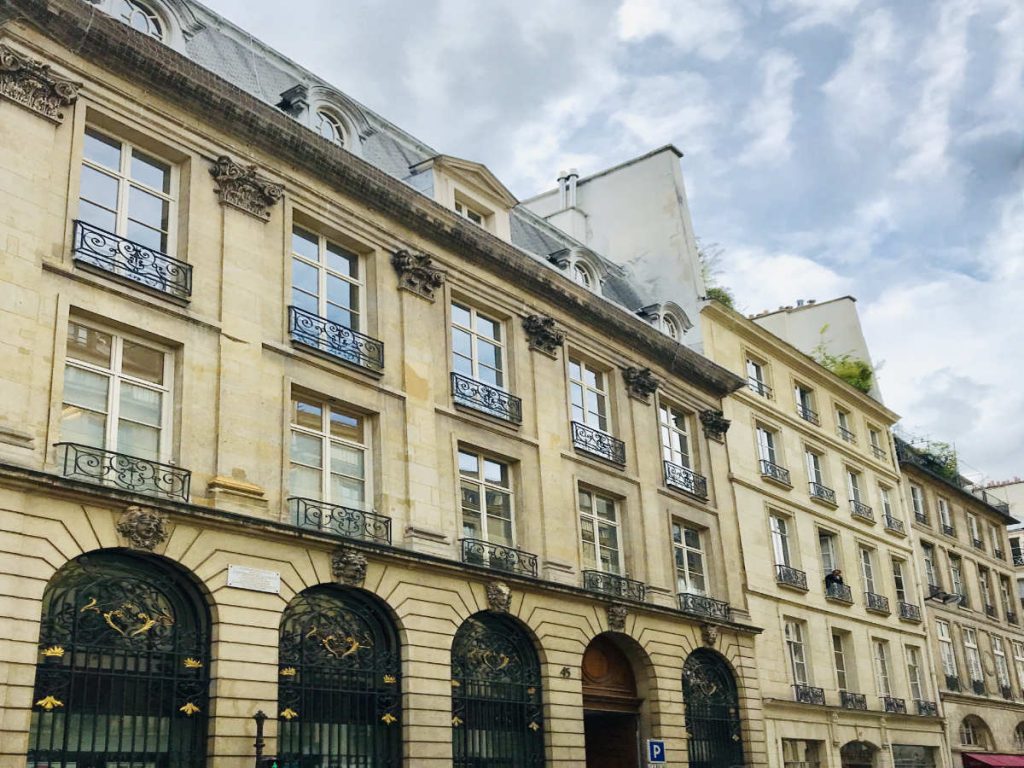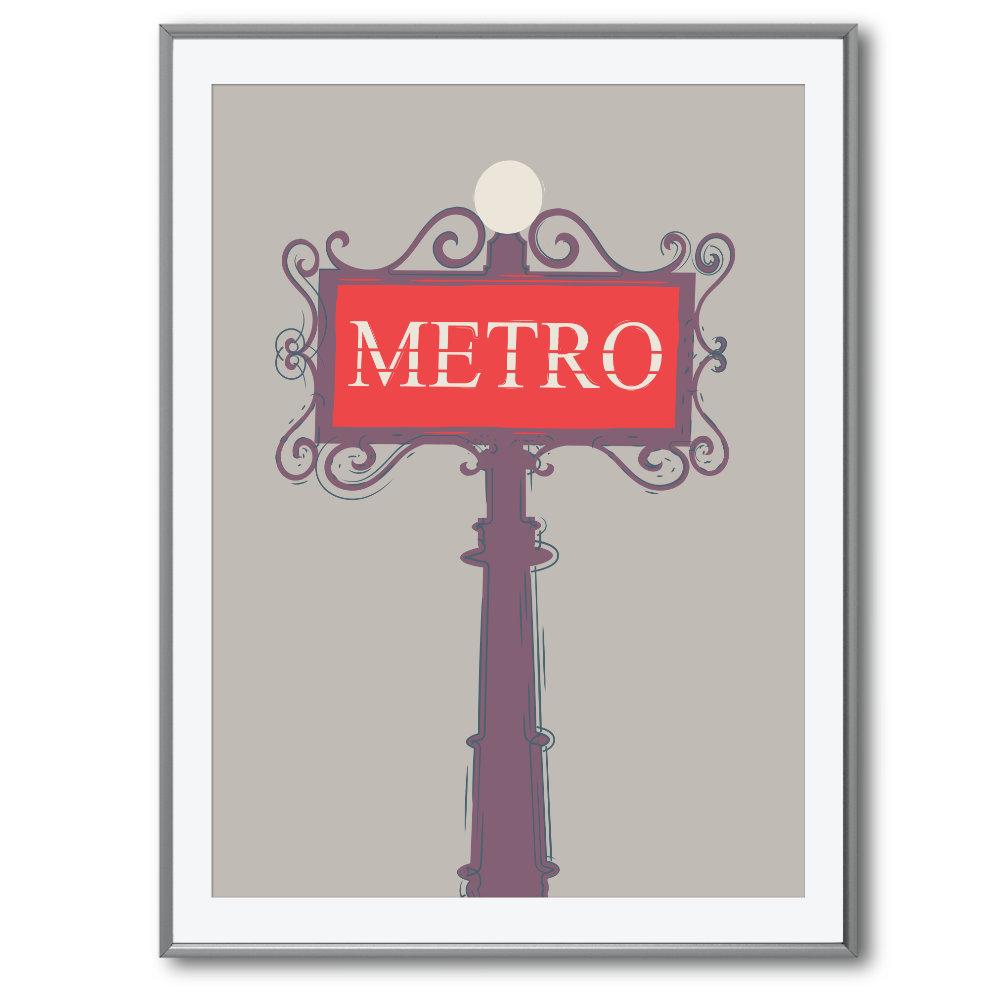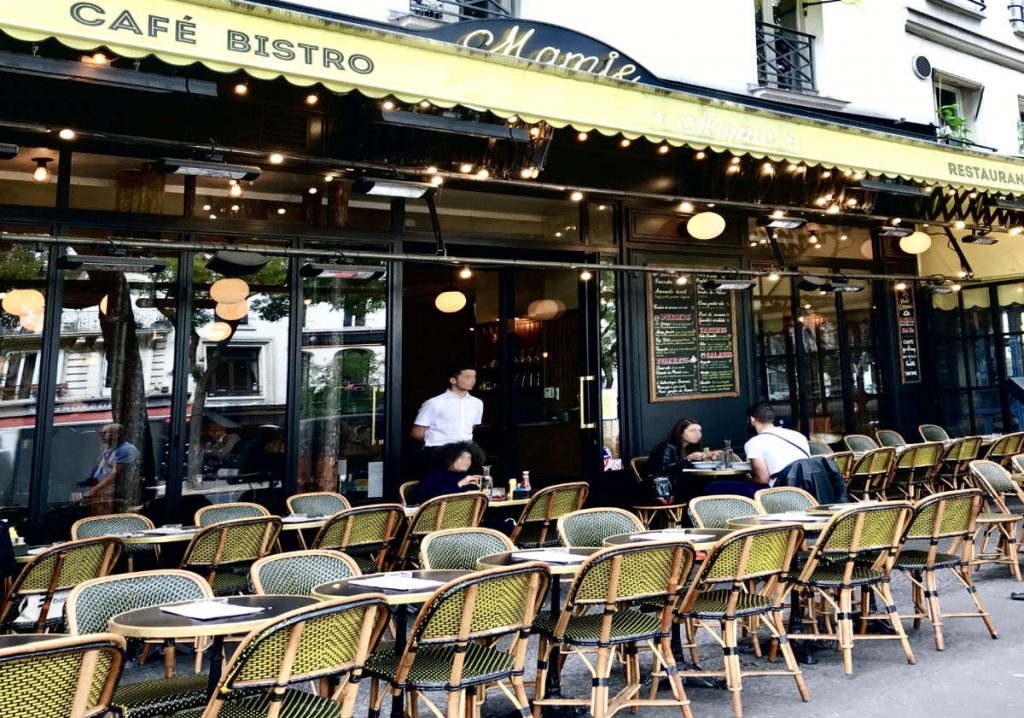Ahh Paris. The City of lights in France, the city of art, history and culture. One of the most romantic cities in the world, Paris is a fantastic place to live. But there are some downsides you should know if you are planning to move here. And the biggest amongst them is the cost of living here.
As a local, I can tell you that compared to other cities across France, the cost of living in Paris is at least 50% higher. The reality is that the cost of living across France varies as widely as the cost of living in the U.S. varies from Manhattan to Ohio. Most of this is attributed to the higher cost of lodging, but there are other differences as well.
With a cachet like no other, Paris is one of the most famous cities in the world, amongst the ranks of London, New York, Tokyo, Zurich and Sydney. With prices that match.
However, when we look at cost of living, it is important to note that a lot of it depends on one’s income and resources, the area of Paris that you choose to live in, and most of all, your own spending habits.
The only way to do an “apples to apples” comparison is to look at specific items. Each bucket of items is broken down into categories so that you can judge for yourself, whether you are a young student calculating the cost of living in Paris, or a French family of 4 living in the big city.
I’ve kept all the prices in Euros, to keep things consistent for currency fluctuations. The current average exchange rates (in 2024) are:
- €1 euro = $1.10 USD
- €1 euro = $1.45 CAD
- €1 euro = $0.85 GBP
I’ve also broken down costs by category so that you can judge the range of prices for yourself. And so without further ado, here are the costs of living in Paris. Allons-y!
I. Accomodation costs in Paris
a) For a Student – Studio Budget
As we say in Paris, you cannot build up and you cannot build out. Buildings in Paris are not allowed to be over 7 stories, so skyscrapers are a no-no inside the city limits. In addition, the city is surrounded by a 6-lane highway encircling it, meaning that it cannot expand outwards either.
So if you want to live in Paris intra-muros (within the walls), you are going to have to pay for it. On average, a rental apartment in Paris costs around €35/square meter. For a studio in Paris, there is an added premium because of the sharp demand.
While there is a difference between prices in the different arrondissements of Paris, in general if you are looking for something bigger, the only thing that can go up is the price.
The legal size of an apartment in Paris is a mere 9 square meters (around 90 square feet). Yes, that tiny. The tiniest apartments in Paris are called chambres de bonnes, and are basically the maids’ chambers from the 18th century.
Located on top floor of those beautiful Hausmannian buildings that are all over Paris, these tiny rooms are often the bare minimum of 9 sq meters. With a tiny kitchen, the bathroom is often shared for with other occupants living on the floor. Don’t be fooled though, they still go for the relatively hefty price of €600+.
A more reasonably sized studio of 20 square meters will be at least €800-900/month, which is closer to €45/sqm rather than the average €35. Here is a sample monthly budget for a studio apartment.
| Sample Budget for Studio for Student | PRICES € |
|---|---|
| Accommodation Costs | |
| a) Rental | 900 |
| b) Building charges | 80 |
| c) Electricity | 60 |
| d) Cable bills and cellphone | 50 |
| Groceries costs | |
| a) Food and other essentials | 250 |
| b) Lunch at canteen | 75 |
| c) Wine | 40 |
| Clothing costs | 75 |
| Metro Tickets | 50 |
| Insurance | |
| a) Healthcare insurance | 30 |
| b) Home insurance and Civil responsibility | 20 |
| Entertainment costs | |
| a) Dining in Restaurants (4-5 times a month) | 400 |
| b) Movie tickets, Museums, and Theme Parks | 50 |
| TOTAL PER MONTH | €1930 |
Note: These figures have been provided for entertainment purposes only. All prices are approximate and are subject to each person’s personal situation. We are not responsible for any differences between actual costs and estimates.
I have included costs such as groceries, travel, etc. which I will discuss later below. But as you can see the biggest chunk of the costs is lodging.
Even with lodging costs being so high, it is very difficult to find a studio apartment in Paris. Evictions are difficult, so in return, landlords usually ask for multiple recommendations, as well as large deposits and guarantees.
If you are an international student, you will likely have to find a local guarantor to agree to pay your rent, in case you are unable. Association programs like Visale also offer guarantees for people who do not have a guarantor.
b) For a Couple
If you are looking for something a bit bigger, the average rent for a one-bedroom apartment ranges from €1,200 to €1,800 per month depending on the quality of the apartment and location. One bedrooms are usually 30-45 sq meters or 300-450 square feet.
There are two main types of rentals in France, furnished (meublé) and unfurnished (non-meublé). Unfurnished is usually around 5% cheaper than furnished.
The costs of living in Paris for a couple would be as follows:
| Sample budget for a Couple | Prices € |
|---|---|
| Accommodation Costs | |
| a) Rental | 1400 |
| b) Building charges | 110 |
| c) Electricity | 90 |
| d) Cable bills with 2 cellphones | 100 |
| Groceries costs | |
| a) Food and other essentials | 500 |
| b) Lunch at canteen | 200 |
| c) Wine | 100 |
| Clothing costs | 120 |
| Metro tickets | 100 |
| Insurance | |
| a) Healthcare insurance | 80 |
| b) Home insurance and Civil responsibility | 25 |
| Entertainment costs | |
| a) Dining in Restaurants (4-5 times a month) | 500 |
| b) Movie tickets, Museums, and Theme Parks | 100 |
| TOTAL PER MONTH | €3425 |
Note: These figures have been provided for entertainment purposes only. All prices are approximate and are subject to each person’s personal situation. We are not responsible for any differences between actual costs and estimates.
At the same time, we should note that salaries in France are generally lower than in North America. INSEE, the government agency that keeps statistics, states that 90% of the working population in France earns less than €3800.
c) For a Family of Four
You either live in Paris, or you don’t. At a certain point, French families with children, usually have to decide whether they can afford to live in Paris. As I mentioned before, Paris can neither grow upwards nor outwards. A glass and concrete tower would ruin the charm of those beautiful Hausmannian buildings.
A two-bedroom apartment in Paris of 75 sq meters (800 sq ft) will cost around €2800/month depending on the location and its condition.
In addition, if you have children, you may also want to get a car. The calculations of my sample budgets above for a student or a couple did not include parking or any other vehicle-related expenses.
So if we take all that into account, along with costs like daycare and schooling (which I will discuss more in detail later below), you are looking at the following sample budget for a family in Paris:
| SAMPLE BUDGET FOR A FAMILY | PRICES € |
|---|---|
| Accommodation Costs | |
| a) Housing | |
| — Rent in a 2-bedroom apt | 2800 |
| — Parking | 150 |
| b) Building charges | 260 |
| c) Electricity | 120 |
| d) Cable bills with 2 cellphones | 100 |
| Groceries costs | |
| a) Food and other essentials | 700 |
| b) Lunch at work | 200 |
| c) Wine | 100 |
| Clothing costs | 200 |
| Transportation costs | |
| a) Metro tickets | 100 |
| b) Gas | 50 |
| Insurance | |
| a) Healthcare insurance | 100 |
| b) Home insurance & Civil responsibility | 50 |
| c) Car insurance | 35 |
| Children & Education Costs (after reductions) | |
| a) Nursery and daycare (1 child) | 500 |
| b) School (1 child) | 50 |
| Entertainment costs | |
| a) Dining in Restaurants (4-5 times a month) | 600 |
| b) Movie tickets, Museums, etc. | 100 |
| TOTAL PER MONTH | €6,215 |
Note: These figures have been provided for entertainment purposes only. All prices are approximate and are subject to each person’s personal situation. We are not responsible for any differences between actual costs and estimates.
If you are looking to purchase an apartment instead of renting, prices in Paris are currently hovering around €10-12keur per square meter. Apartment prices in Paris are more than double the price in the other major cities in France.
Effectively, to buy a 70sq m apartment in Paris, (750 sq ft with 2 bedrooms), you are looking at around €1.2m, plus notary fees and taxes of 9%. The central arrondissements in Paris will be higher, with apartments around the Champs Elysées significantly more expensive.
On the other hand, the smaller the place is, the higher the premium. In addition, notary fees and taxes of around 7-9% are added to the purchase price.
In addition, most Parisian buildings that are from the 18th century do not have parking. If you require parking, you can count around €150/month for a parking spot, that will likely be rented from a nearby parking lot, rather than the same building underground.
No wonder that many families choose to live just outside of Paris, in its suburbs. For houses outside Paris and other major metropolitan areas in France, prices will vary greatly depending on the location, amenities, and condition of the home.
All homeowners also pay an annual “taxe fonciere“, which is a type of property tax based on location and income (on average in the €1-3k range). In certain areas like Paris, if the home is a secondary residence, the taxe fonciere is increased by 60%.
There is also a “taxe d’habitation” on properties, which is paid only by high-rentals, high-income earners and secondary residences.
II. Other Rental charges

a) Building charges
Both owners and renters of apartments will be required to pay building charges for the upkeep of the building, including if the building has elevators, parking spaces, and a gardien (concierge). On average, the price annually is around €40-50/ sq m.
Older Haussmannian buildings in Paris have centrally controlled radiators for heat, which are turned on by the building at the start of November. The price is usually included in the building charges.
The biggest portion of the charge is due to a gardien who usually lives in the building and manages all the maintenance and upkeep, as well as collects all the deliveries and packages.
b) Electricity
Electricity depends on the size of your apartment as well as your consumption. For a 70 sq m apartment in Paris, it should be around €75 in the summer (no aircon in France) and €150 in the winter.
However, if you don’t have central heat radiators, you will have electric heaters, and the prices will significantly vary based on consumption.
There is also an option with your electricity company to only heat your hot water tank (chaudiére) at night at a slightly cheaper rate.
☞ READ MORE: Household items you will own if you live in Paris
c) Cable bills
A basic set of channels is available by antenna for all French residents. An annual amount of €140 is collected through your income tax return (called the rédevance télé), which all residents have to pay, unless they can prove that they don’t have a TV.
For cellphone, internet, and cable, you can usually get a package deal for around €50-60, which will also include a landline. Each additional cellphone line is around €25 with a mid-range data package.
Note, mo landlines in France usually have free calling internationally to over 70 countries, including U.S., Canada and the U.K.

III. Groceries costs
a) Food and other essentials
Grocery costs are pretty equivalent to North America, with a range of cheaper grocery stores in France up to more expensive artisanal shops.
The Whole Foods equivalent in France is the more expensive Monoprix, which can be found in every neighborhood. Other slightly cheaper grocery stores that you can find all over Paris are Carrefour and Franprix.
Specialty shops: French people do tend to buy their meat at a boucherie, bread at a boulangerie, cheese at a fromagerie, etc. Some of these specialty shops are more artisanal than others and prices can vary widely depending on how unique the products sold are.
Farmers Markets: Farmers markets in Paris are not particularly cheaper than grocery stores, the produce just tends to be of better quality. Local produce is quite in demand by hip Parisians, so don’t expect to find major bargains.
b) Lunch at work
In France, the employer is required to provide employees with “access to a decent meal in good conditions”. (Students will see a similar practice in schools and universities.)
In essence, this means that most large employers have negotiated with their unions to provide a highly subsidized canteen on the premises. A full meal with entrée–plat–dessert at a work canteen should cost around €5-6.
If the employer is too small to have a canteen, it can instead purchase “ticket restos” which are meal certificates to give to employees. These can be used in restaurants and grocery stores to purchase meals, as the employee wishes. A large portion of the cost is picked up by the employer, and the rest by the employee.

c) Wine
One item that is a lot cheaper in France is the wine. Given that there are several wine regions in France, some (not-great) French wines start as low as €2.50. And at Parisian grocery stores, you can actually get a relatively decent bottle for as little as €5.
You can, of course, get more expensive bottles (sky is limit!). But if you just want a simple bottle for an apéro or a picnic along the Seine, a trip to the local french grocery store will see you walk out with wine, cheese, a baguette, and a pack of charcuterie for less than €10.

IV. Clothing costs
Clothing costs vary widely from ready-to-wear fashion to high-end luxury brands, so it really depends on your own tastes. With plenty of vintage shops and small boutiques all over the Paris, your clothing costs will really depend on your self-control!

V. Transportation costs
a) Metro tickets
A metro ticket in Paris costs around €2 which gets cheaper if you buy a pack of 10. Prices in other major cities in France will be similar.
The real difference when calculating the transportation cost of living is that French employers are legally obligated to cover 50% of the costs of traveling to work. So they usually pay for 50% of the unlimited monthly metro pass, bringing the price down significantly from around €80/month to €40/month.
Parisian children also get their transport reimbursed by the local government.
b) Gas
If you are American, you will be shocked at the cost of gasoline in France. The current price in France is around 1.6/litre which is around €6/gallon in Euros or $7.10/gallon in USD. That is approximately 3 times the price that Americans pay. Most of the difference is due to taxes in France.
Also, gasoline prices are much higher on the highway if you are driving around France, so don’t be surprised to see 1.7/litre or more.
c) Airline tickets
Budget airlines are the norm in Europe, and even mainstream airlines like Air France have their own budget brands. Flights are quite cheap, with add-ons like luggage, etc. tacked on.
For example, you can get a flight from Paris to London for around €100-150.
d) Train tickets
Convenience aside, it is usually more expensive to take the train than it is to fly. The same trip from Paris to London on the Eurostar high-speed train would be closer to €200-350. Paris to Marseille would be around €150-250 for a round trip.
One thing to take into account, however, is transportation costs to the airports which are outside the city.
VI. Insurance
a) Healthcare insurance
Healthcare is free in France for tax-paying citizens and residents, so that is a cost that we don’t usually take into account. Even if you had to pay out of pocket, the prices of medications, going to the emergency room, or giving birth in a hospital, are just pennies on the dollar.
Most people do have additional health insurance (called Mutuelle) through either their employer or private insurance to cover any overages such as glasses, dental, and prescriptions that are not covered by the government.
b) Home insurance and Civil Responsibility
Both renters and owners are required to get Assurance Habitation avec Responsabilité Civile to cover the family. The assurance habitation (home insurance) covers the home and contents.
Responsibilité Civile is more interesting because it covers actions outside the home as well. It covers the material or bodily damage to a third party, whether through negligence, carelessness, his children, animals or things for which he is responsible. It does not cover intentional acts.
c) Car insurance
Most Parisians don’t have a car, but if you do, car insurance for a small car with minimal coverage is around €400-500/year.
VII. Entertainment costs

a) Dining in Restaurants
In France, you don’t really have the super-cheap $2 for a pizza slice deals that you see in North America. For one, most French people don’t snack, so there is no reason to offer deals like that. As well, the cost of adhering to French food rules and regulations means that it would not be profitable.
Restaurants in Paris can vary significantly from the tiny brasserie on a quiet street to 3-star Michelin restaurants in the fanciest part of town. Prices in France already include all taxes, and tips to the server are not required. Most French people usually leave only leave a couple of euros, because the waiter is expected to earn a full salary through his employer.
For a Frenchman in North America, he will be surprised to see taxes and tips added to the bill, while the American in France will be amazed by how “cheap” it seems compared to what he was expecting.
If a bavette de boeuf on the menu at a Parisian brasserie is displayed as €20, that is actually the price that you will pay.
b) Movie tickets, Museums, and Theme Parks
There is the full price that tourists pay, and then there is the price that locals usually pay. Most French people have access to large discounts on things like movie tickets and sightseeing attractions through their work, as part of their union-negotiated perks.
Big theme parks like Disneyland Paris, Parc Asterix, and Jardin d’Acclimatation offer discounts to firms for their employees, as well as special offers depending on the time of the year. (Usually, the larger the firm, the better their Comité d’Entreprise benefits will be.)
Museums also offer EU citizens under 25 free access, as well as reduced prices for the unemployed, handicapped, and other special classes. There is also free access to most museums on the 1st Sunday of every month.

VIII. Children and Education Costs
a) Nursery and daycare
State subsidized daycare (créche) is the holy grail for a lot of parents in Paris, because of its high standards and affordable cost. The price is based on an income scale, with the maximum being around €2.50/ hour. On average for a 40hour week, the monthly cost is around €800 euros for high-income earners. At the low end, the price can be as low as €50/ month.
Getting into a créche in Paris is as much a function of where you live within Paris, what connections you have, and pure luck. The underground network of mamans in Paris will tell you it is somewhat easier to get a spot in the 5th arrondissement, as families leave in droves due to the high price of lodging in the areas.
On the other hand, getting a spot in the more family-oriented 16th arrondissement with its larger apartments is more troublesome.
If you do not get a spot in créche and have to get an assistant maternelle instead, a government agency called CAF covers a good portion of the costs, bringing the price down to (more or less) the equivalent of créches.
A lot of large French companies also have Employee Committees (Comité d’Entreprises) which will cover a portion of the childcare costs.

b) School
Schooling is obligatory in France, with home-schooling highly discouraged. Maternelle (from 3 years old) to high school is free in France, although additional programs like early drop-off, late pick-up, and school canteens cost extra. Prices are based on income and town you live in. As an example, for school canteens in Paris, the amounts in question can be as low €0.15 per day, which works out to €4/month.
In addition, all childcare expenses (including créche and after-school activities) provides income tax credits on your annual tax return. The French government agency CAF also pays each family a stipend per month, depending on the number of children, the family’s resources, and special factors such as if it is a single parent, etc.
c) University
Public universities are free in France and every French student is guaranteed a spot somewhere. There are several universities in the Parisian area like Science Po, the Sorbonne, and Cité Université.
More interestingly, some schools like the National School of Public Administration ENA, actually pay the students a stipend of around €1700/ month to attend! Competition is steep to get into schools like ENA, and students are expected to work for the government for 10 years after graduating, or they pay those funds back.
There is another class of universities in France however, called the Grandes Ecoles that are more prestigious, but also more expensive. These French “Ivy League” universities like HEC and ESSEC, can easily cost anywhere from €8k-15k a year. (HEC is also located just outside of Paris, so you will need a car to get there.)
On the other hand, students in France receive a subsidy for housing and other costs of living from the government agency CAF, which depends on the parents’ income and school location (The Parisian student’s cost of living is assumed to be higher than other regions).
☞ READ MORE: The French Education System Demystified
IX. Sales Taxes in France
One thing I should mention is the sales taxes, or Value-added Tax (TVA or Taxe sur la valeur ajoutée in French).
TVA is a flat sales tax that is included in all the items I have noted above, at either a 0% rate for basic essentials up to 20% for everything else. The sales price in shops usually already includes this, so you don’t need to account for this separately.

So there you have it, the deep dive into the cost of living in Paris. If you enjoyed this article, you may want to read more about the reality of living in Paris. (Hint: It is not what you think!) A bientôt!







